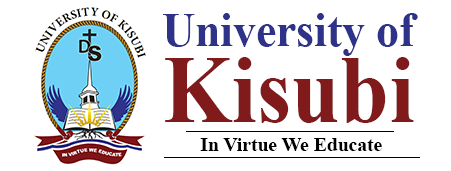
The University of Kisubi (UniK) successfully convened its Second International Academic Research Conference from 10th to 11th April 2025, bringing together a diverse group of scholars, researchers, innovators, policy makers, and students under the compelling theme:
“Community Transformation through Research and Innovation for Improvement of Human Condition in the ‘New Normal’.”
Held at the University’s serene Entebbe campus, the two-day event served as a vibrant platform for interdisciplinary collaboration and critical dialogue on how research and innovation can address the urgent social, environmental, and technological challenges of our time.
Opening Remarks and Theme Contextualization
In his opening address, Dr. Deogratuis Mugema, Vice Chancellor of the University of Kisubi, underscored the growing need to examine the rapid evolution of technology — particularly in areas like Artificial Intelligence (AI) — and its impact on society. He emphasized that the “new normal” shaped by pandemics, climate change, and evolving digital ecosystems demands renewed focus on research that delivers practical, sustainable solutions for real-world problems.
“This conference is more than an academic gathering; it is a call to action,” Dr. Mugema stated. “We must deeply interrogate the challenges and opportunities emerging from global disruptions, and explore how research can catalyze meaningful community transformation.”
Distinguished Guests and Keynote Addresses
The conference was officially opened by Dr. Cosmas Mwikirize, PhD, who represented the Minister of Science, Technology, and Innovation, Dr. Monica Musenero. Dr. Mwikirize applauded UniK for its commitment to academic excellence and relevance, highlighting the critical role that institutions like UniK play in advancing Uganda’s National Development Agenda through innovation and research.
Keynote presentations were delivered by an impressive lineup of thought leaders and subject matter experts:
- Dr. Julian Lutamwa, a respected molecular virologist and immunologist, delivered a powerful address emphasizing the “One Health” approach — which integrates human, animal, and environmental health. He called upon researchers to translate science into tangible products that serve communities and improve livelihoods.
- Dr. Sheila Balinda gave an inspiring talk on Biomedical Research, drawing from her experience in responding to outbreaks like Foot and Mouth disease and her ongoing research on HIV/AIDS. She highlighted how scientific inquiry not only saves lives but also opens doors to exciting and impactful career paths.
- Prof. Henry Mutebi shared groundbreaking insights from his research on procurement practices in humanitarian organizations, focusing on how stakeholder expectations and organizational structure affect decision-making and operational efficiency.
- Prof. Paul Waku emphasized the need for strategic partnerships in driving research and innovation within universities. His presentation explored models of collaboration that enable commercialization of research outputs, ensuring that innovations reach the communities they are meant to serve.
The conference also featured international presenters from Kenya and Nigeria, bringing broader regional perspectives to the discussions.
UniK’s Homegrown Scholars and Presenters
The University of Kisubi showcased the strength of its academic community with thought-provoking presentations from local researchers, including:
- Dr. Kizza James,
- Muburi Pontius,
- Dr. Jackie Lugemwa, and
- Dr. Nalubega Jane.
These presenters explored a range of issues including education, public health, entrepreneurship, environmental sustainability, and digital innovation.
Student-Led Exhibitions and Innovations
In addition to plenary sessions and breakout panels, UniK also held an exhibition of student-led research and innovations across disciplines such as science and technology, education, health, and business. These projects demonstrated the creativity and dedication of UniK’s student body in addressing real-world challenges through practical solutions, prototypes, and community-centered innovations.
A Call for Action and Collaboration
As the conference concluded, participants left with renewed energy and inspiration to build on the ideas exchanged. There was a consensus on the need to deepen collaboration across borders, sectors, and disciplines to transform research into action and impact.
The Second International Academic Research Conference at UniK not only showcased the university’s academic growth but also reaffirmed its place as a leading force in shaping research that truly serves humanity in a post-pandemic world.
“This is just the beginning,” said Dr. Mugema in his closing remarks. “We look forward to more vibrant engagements, stronger partnerships, and research that continues to transform our communities and the human condition.”
